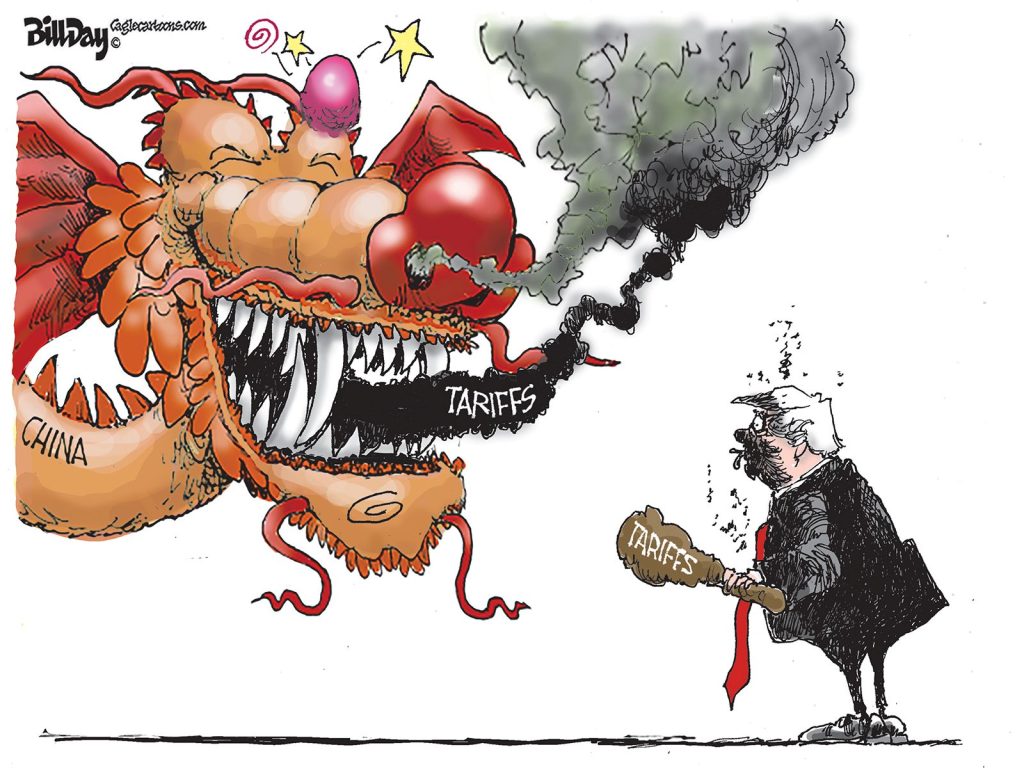It has been just over six years ago that former Shelby County Commissioner John Willingham laid out a plan for a payroll privilege tax that would eliminate the 2.25% local option sales tax, eliminate the wheel tax, slice the county property tax rate by 25%, and reduce the Memphis property tax rate dramatically. With a crying need for funds so that public services don’t deteriorate any more than they already have, that the tax burden can be reduce for citizens and businesses of this community, and that people from outside Memphis and Shelby County who use their services and amenities would support them, it seems like a good time to take take a new look at the Willingham Tax Reform Plan.
The assumptions in Mr. Willingham’s plan, which shows significant tax savings for citizens here, have been validated by economists at the University of Memphis. The privilege tax route might be a way to implement his plan which makes our tax structure fairer, but rather than debate whether it can or not, Memphis and Shelby County officials should give it a fair hearing and a plan to test whether it can be done.
Here’s a post on this subject from November 1, 2006:
In one of the most unusual shout-outs in local politics lately, Memphis Mayor Willie W. Herenton last week praised former Shelby County Commissioner John Willingham for his proposal to tax the 80,000 commuters coming into this county to work. We’re told that Mayor Herenton is well-aware of the elements of the plan that would cut local taxes and enact referendum requirements for tax hikes.
In case you have forgotten, here’s what that plan was all about, as explained a year ago on this blog:
Soon, we will enter yet another budget season for local government, and once again, there will be the regular hue and cry about the tax rate, bonded indebtedness, fund balances and the need for public sacrifice. But for the first time, there’s hope that local government will finally talk about fixing what’s really wrong — our broken tax structure.
The dilemma for Memphis and Shelby County is that while new sources of revenue, such as impact fees and adequate facilities taxes, are helpful in balancing budgets, they are only short-term solutions. There is no long-term answer until a new tax structure is created to remove the present inequity and unfairness.
Unfair At Its Core
In a studied 51-city analysis released last year by the Office of Revenue Analysis for the District of Columbia Government, Memphis is among the worst three cities for its regressive tax structure. In the meticulously documented report, the analysts looked at the tax burden for the largest city in each of the 50 states and Washington, D.C.
Only a couple of cities fared worse than Memphis. Our city’s taxes are regressive at their core, meaning that low-income families pay a larger share of their incomes in taxes than high-income families.
That’s because local government has an overreliance on property taxes and sales taxes, when compared to other governments across the U.S. With no real options except the two primary tax sources allowed by state law, city and county governments are left with two inequitable places to go for more revenues – the regressive sales tax or the regressive property tax.
Stop Stopgap Answers
While local efforts to expand tax sources are well-intended, in the end, the current tax structure is so badly flawed that even new sources are just stopgap answers that don’t address the real inequities in the system.
The study analyzed the tax burden for families with average incomes of $25,000, $50,000, $75,000, $100,000 and $150,000. The assumptions for the study were that each family has four members and owns a single family home within the city limits.
The average tax burden for the 51 cities across the U.S. was 7.3 percent for families earning $25,000; 8.3 percent for families earning $50,000; 9.1 percent earning $75,000; and 9.2 percent at the $100,000 and $150,000 levels. In other words, most cities have a tax structure that responds to a person’s “ability to pay.”
Memphis does just the opposite. The more a family earns, the less it pays. The family earning $25,000 pays 7.0 percent, right in line with the average for the 51 cities.
The Least Pay More
But, the family earning $50,000 doesn’t pay more; it pays less – 6.2 percent. A family earning $75,000 pays 6.3 percent, one-third less than the national average; and the $100,000 income family pays 5.9 percent and the family earning $150,000 pays 5.6 percent.
In other words, in the higher income brackets, Memphis taxpayers are paying a smaller percentage of their income in taxes than families making one-fourth as much. These Memphis high-income families are paying roughly 40 per cent less than the average of 51 cities.
The only program put forth to deal with the urgency of overhauling our tax structure is the Shelby County Fairness Program, the creation of Commissioner John Willingham to enact a payroll tax on every one working in Shelby County, aiming at the about 80,000 people who drive in to work here
Transforming The Tax Structure
The goals of his plan, as stated in his proposal, are to:
1) reduce and abolish taxes
2) restore an advantage to taxpayer-owned businesses
3) pay down the county’s debt
4) make Shelby County competitive with its neighbors without issuing more PILOTs
5) provide meaningful financial contributions to state government and the seven municipal governments in Shelby County.
Cutting The Tax Burden
Based on the new revenues generated by the tax, the plan called for elimination of the widely hated wheel tax; the lowering of the county property tax by 25 percent; and the elimination of the local option sales tax (reducing the county rate to 7 percent). In addition, the plan calls for a 10-year ban on any tax increases, and sets a high bar for payroll tax increases by allowing them only as a result of public referendum.
It’s a gutsy proposal, coming so close to the election season, but finally, it gets the real tax issue on the table – the need to reinvent the county tax structure.
Commissioner Willingham is a Republican with a strong populist streak, and he’ll need to develop a grassroots way to communicate the proposal to the public. But his toughest audience will probably be his own party, which has gravitated toward the no-tax pledges over the years that have contributed to the county’s catastrophic budgetary picture.
Hopefully, his proposal will encourage serious debate on the critical need for a progressive local tax structure, but most of all, it should make sure that every idea or suggestion is viewed through a single lens: Does it correct the structural tax problem that is a drag on the local economy and an unfair burden on most local taxpayers?





payroll occupational priviledge. whatever. State Law prohibits it.
Next…
State law does not prohibit privilege taxes and a previous state attorney general agreed.
Anyone with even a BASIC understanding of economics and human nature knows that taxes are an impediment to the behaviors or items taxed. In other words, a tax on income discourages working. We already have a lot of people in Memphis and Shelby County who choose not to work. That is actually at the root of almost all of our city’s other problems. The decline in property values and population, the rise in crime and the increase in the city’s financial problems all reflect a pattern where the a large percentage of Memphians choose to live a life of dependency instead of industry. The people running Memphis have been using the city as their cash cow for the last 40 years, and instead of finding the corruption and putting some people in prison, the looting from the taxpayers has been allowed to continue unabated. Memphis always claims to not have the money to provide basic services, but they have consistently refused to balance the budget, and the already-high tax rates are running businesses and residents alike out to the suburbs. As for the “privilege tax” , working is not a privilege, and nobody should be penalized because their employer happens to be located in Memphis. Fred Smith has stated several times that if such a “privilege tax” passes, Fed Ex will not be in Memphis anymore.
John: Thanks for the comments, but they are simply absurd and not based on any historical understanding of this city. Fred Smith has never spoken about a privilege tax, and it wouldn’t affect the corporation anyway. More to the point, it’s not an imposition to collect it because FedEx is already doing that for its Mississippi employees. If you have concrete, real examples of the looting of city coffers, don’t waste your time posting comments here. Call the Memphis FBI Office at 747-4300.
One other thing John, since Memphis is more efficient in all services than nthe surrounding municipals and the county; I suppose you believe the looting is bigger there?